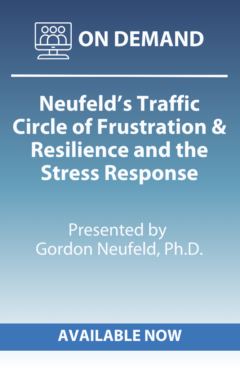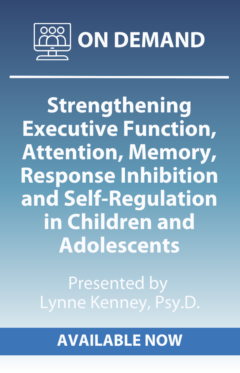Description
This workshop will be live streaming to online participants on October 25, 2024 from 8:30am – 4:00pm (Vancouver, BC)
Please adjust your start time according to your specific time zone.
Recorded footage and all course content (certificate, videos, quiz) will be available until November 25, 2024. Extensions cannot be granted under any circumstances.
Please allow 5 – 7 business days after the course airs for recorded footage to become available.
Registration will close on October 23, 2024.
The nagging symptoms and feelings of isolation that accompany trauma, anxiety and depression can make your clients relationships even more overwhelming and complicated than usual.
Not knowing what to say or how to express their feelings to the people in their lives, their relationships start to overflow with high-conflict patterns, blaming, resentment, boundary violations, and trust issues. By the time you meet for their next session the tensions of these interactions have exacerbated their symptoms and eroded their support system.
That’s why you need Interpersonal Psychotherapy (IPT), a brief, evidence-based treatment that gives your clients the tools they need to rapidly improve their relationships and reduce their symptoms.
Heavily research supported, endorsed by major mental health organizations, and used by thousands of therapists around the globe, IPT is proven to achieve significant results and symptom reduction in just 12 to 16 weeks.
In short, it’s a must-have tool for any therapist looking to give clients fast, effective relief.
And when you register for this training, you’ll learn how to bring IPT into your practice with distinguished expert Dr. Lillian Gibson. She’s a highly sought-after trainer who’s showed countless therapists how to get the most out of IPT.
Dr. Gibson will show you how IPT’s easy to use structure gives you a roadmap to treatment success. PLUS she’ll show you how IPT’s flexibility allows you to apply it in one-to-one sessions or in group settings with almost any client, no matter their age or background.
Full of techniques and skills clients can start using right away IPT gives you the relational approach you need to:
- Build client’s ability to express their emotions
- Reduce misunderstandings that can lead to stressful relationship challenges
- Resolve distressing interpersonal conflicts in constructive ways
- Teach problem-solving skills that reduce feelings of anger, frustration, and anxiety
- Provide clients the tools they need to cope with life adjustments and deal with perceived loss
- And much more!
Don’t miss this chance to add this fast-acting, evidence-based treatment to your therapeutical toolbox.
IPT: Reducing Symptomology by Improving Clients’ Relationship Skills
- The interpersonal context of clients’ mental health
- The impact of early attachment experiences and family dynamics on interpersonal functioning
- Overview of IPT’s history, development, and theoretical underpinnings
- Key features of IPT and evidence base
- Problem areas targeted: role disputes, role transitions, interpersonal deficits and grief
- Treatment limitations and risks
- Inclusion/Exclusion criteria for discerning when to use IPT techniques in groups or individual work
Assessment and Treatment Planning
- Clinical IPT interview outline
- Assessing interpersonal functioning and identifying relevant problem areas
- Steps for conducting the interpersonal inventory with clients
- Communication styles, attachment patterns, and role expectations
- Review of helpful self-report measures
- Treatment considerations when comorbid issues are present
- Cultural and diversity considerations and adapting to specific populations
Getting Started with IPT: How to Conduct the Initial Phase
- Psychoeducation on social support, interpersonal relationships, and mental health
- Completing the interpersonal inventory
- Formulating a treatment strategy with clients
Intermediate Phase of Treatment: IPT Techniques and Strategies to Jumpstart Interpersonal Change
- Communication analysis to identify problematic communication patterns
- Using decisions analysis to clarify values, priorities, and options
- Role play exercises for practicing confident effective communication
- Interpersonal skills building
- How to use IPT to address grief, role disputes, role transitions, and interpersonal deficits
- Develop and reinforce new interpersonal skills and patterns
Phase Three: Termination and Maintenance
- Identifying past treatment trends
- Summarizing progress and reviewing treatment goals
- Consolidating gains and preparing for termination
- Strategies for maintaining new interpersonal patterns
IPT as an Adjunctive Treatment for Trauma
- Addressing trauma in the context of interpersonal relationships
- Conducting an interpersonal assessment in clients with trauma histories
- Coping strategies to manage triggers in the context of interpersonal relationships
- Targeting interpersonal problems that have arisen as a result of the trauma or loss
- Research limitations of IPT for trauma
IPT for Anxiety and Depression
- Interpersonal factors in the development of anxiety and depression
- The role of social support, attachment, and communication patterns
- Specific interventions for fears related to change and loss, resolving conflicts and misunderstandings, and enhancing social support networks
- IPT as an adjunctive treatment for anxiety
Clinical Professionals: All mental health professionals including, but not limited to Clinical Counsellors, Psychologists, Psychotherapists, Social Workers, Nurses, Occupational Therapists, Hospice and Palliative Care Workers, School Counsellors, Youth Workers, Mental Health Workers, Addiction Specialists, Marital & Family Therapists, Speech Language Pathologists, Vocational Rehabilitation Consultants and all professionals looking to enhance their therapeutic skills.
| Registration | Early bird Fee | Regular Fee |
|---|
| Individual Enrollment | $269.00 | N/A |
All fees are in Canadian dollars ($CAD).
Group rates and student discounts are available. Please contact webinars@jackhirose.com for more information.





